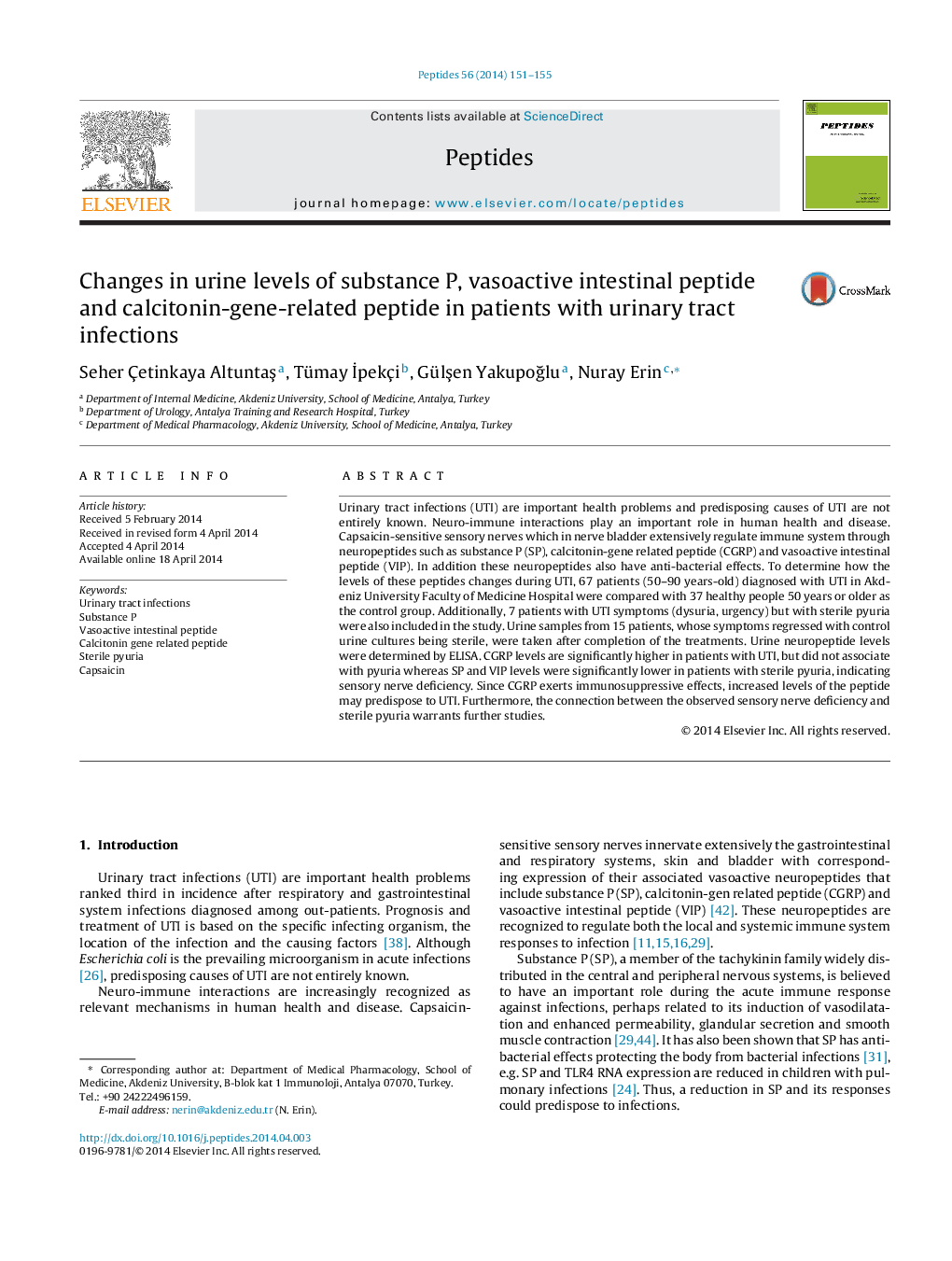| Article ID | Journal | Published Year | Pages | File Type |
|---|---|---|---|---|
| 2006073 | Peptides | 2014 | 5 Pages |
•Urine neuropeptide levels were investigated in 67 patients diagnosed with a urinary tract infection.•CGRP levels were significantly higher in patients with UTI, which was not due to pyuria associated with infections.•SP and VIP levels were significantly lower in patients with sterile pyuria.•Urine neuropeptide levels were decreased following ceftriaxone treatment.
Urinary tract infections (UTI) are important health problems and predisposing causes of UTI are not entirely known. Neuro-immune interactions play an important role in human health and disease. Capsaicin-sensitive sensory nerves which in nerve bladder extensively regulate immune system through neuropeptides such as substance P (SP), calcitonin-gene related peptide (CGRP) and vasoactive intestinal peptide (VIP). In addition these neuropeptides also have anti-bacterial effects. To determine how the levels of these peptides changes during UTI, 67 patients (50–90 years-old) diagnosed with UTI in Akdeniz University Faculty of Medicine Hospital were compared with 37 healthy people 50 years or older as the control group. Additionally, 7 patients with UTI symptoms (dysuria, urgency) but with sterile pyuria were also included in the study. Urine samples from 15 patients, whose symptoms regressed with control urine cultures being sterile, were taken after completion of the treatments. Urine neuropeptide levels were determined by ELISA. CGRP levels are significantly higher in patients with UTI, but did not associate with pyuria whereas SP and VIP levels were significantly lower in patients with sterile pyuria, indicating sensory nerve deficiency. Since CGRP exerts immunosuppressive effects, increased levels of the peptide may predispose to UTI. Furthermore, the connection between the observed sensory nerve deficiency and sterile pyuria warrants further studies.
